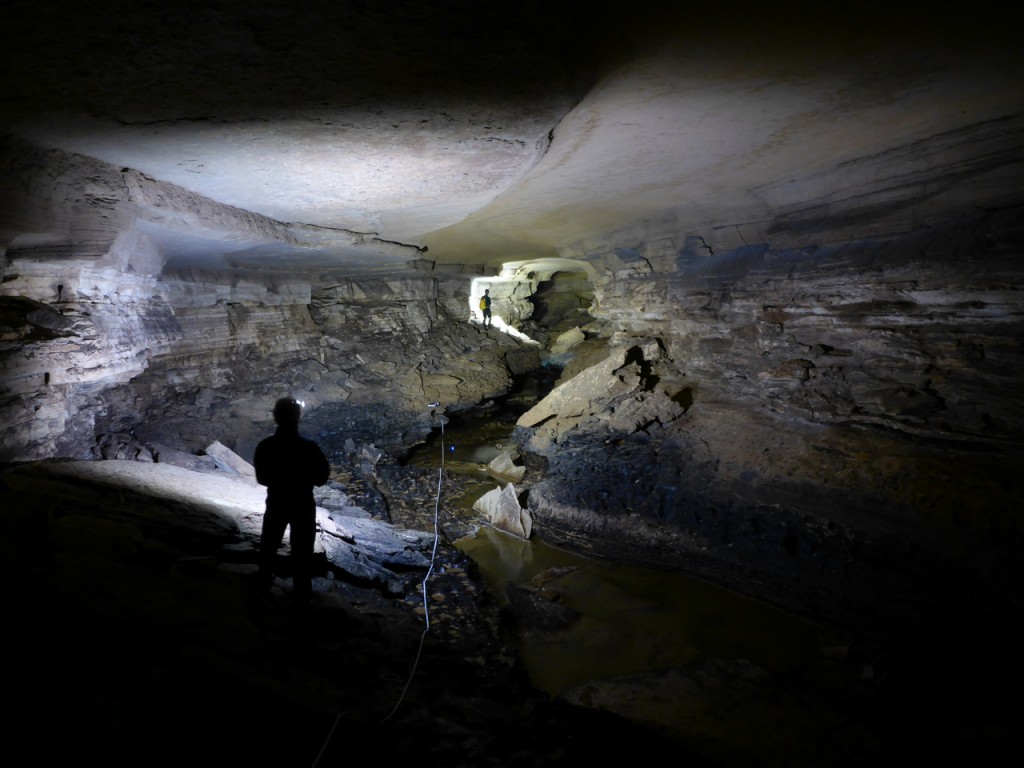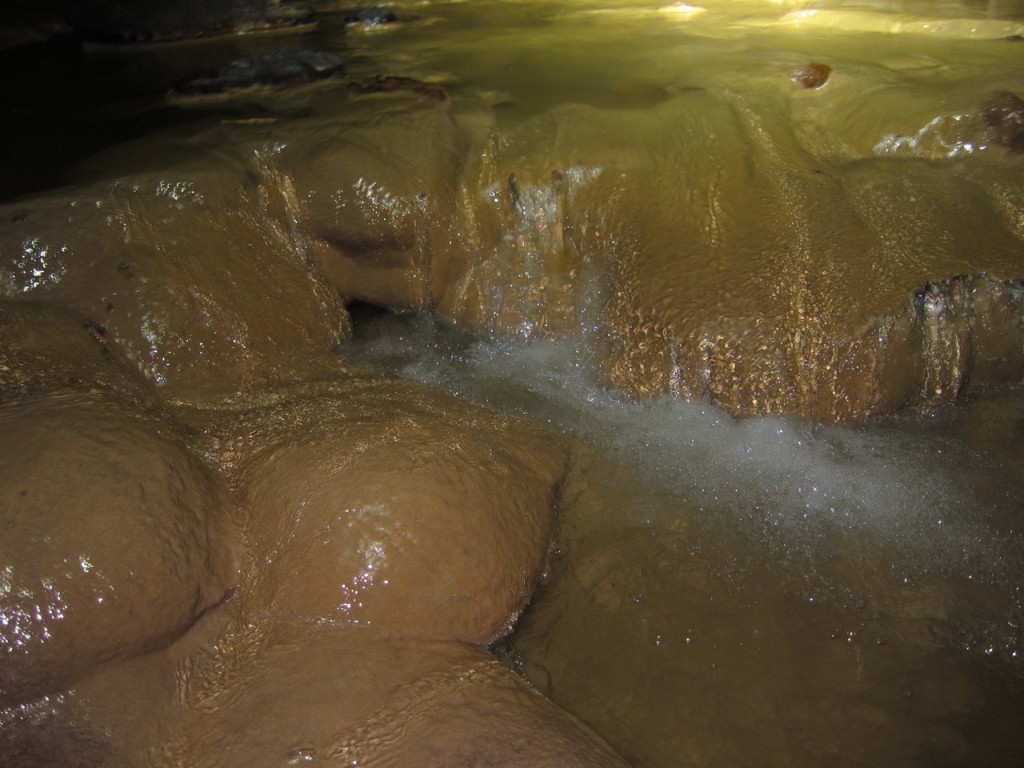Area’s Holey Lands Are An Ecological Treasure

Volunteers are re-mapping the Fogelpole Cave System using new instruments and technologies that will allow GIS-layered views. Photo courtesy Michael Bradford.
As we celebrate the 200th birthday of Monroe County’s political incorporation, we should not lose sight of the facts that our cultural history runs deeper and longer. The peopling of Monroe, like all places, is a story of feast or famine, booms and busts, successes and failures, and constant change. Native American drumming gave way to French flutes, British pipes, Virginian fiddles and German zithers, each lyriczing short-lived expectations of hegemony.
But real history comes in two interlocked parts: human history and natural history. Monroe County’s natural history runs deeper than and frames the backdrop for the parade of peoples, with the songs of wood thrush, wind through the trees, and babbling springs syncopating our every endeavor and complimenting our cultural legacy.
Monroe County can indeed celebrate many firsts. Along with portions of now neighboring St. Clair and Randolph Counties, our region is where Illinois began: the first area in the state settled by Europeans, the first territory, the first county, and, after statehood, the first state capitol. And, Monroe County, ever unique, is our state’s first and foremost “Holey Land.”

Water within the Fogelpole Cave system helps create habitat for rare and unusual cave-dependent animals. Photo courtesy Steve Taylor, Illinois Natural History Survey.
The magical interaction of water and limestone has created, and continues to create, a singular, lunar-like landscape in the county — a topography called karst terrain. We boast over 10,000 sinkholes and sinkhole ponds, a testimony to our holeyest status. And where there are sinkholes, there are caves; Monroe County has more caves than any county in Illinois. But our greatest claim to celebratory spelean historical fame is Fogelpole Cave, the largest and most biologically diverse cave in the state.
With 15 miles of currently known humanly-navigable passageways, and with ceilings reaching 60 feet, Fogelpole Cave is also the 51st largest cave in the United States. The cave’s main-stem passageway’s stream, located about 80 feet underground, fetches groundwater runoff from every sinkhole in a 4,500-acre recharge basin. Three species of federally-listed bats seasonally use the cave, and the cave system is the permanent home of a rare, federally-listed crustacean found only in Monroe County. In addition, 14 species of invertebrates living in the system can be found nowhere else on Earth.
The history of Fogelpole Cave, like all of Monroe’s history, is an interdependent story of people and place. Two families are credited with the vision and persistence to protect the cave system as a pristine natural area for future generations.
The Fogelpole family, for whom the cave is named, began farming ground atop a part of the cave system at the turn of the 20th century. Two known and relatively easily accessible entrances to the cave system were on their property. The family, particularly Joe Junior, who never married and was the last of the direct family line, took an active interest in the cave and insured limited access and, so, little damage. In the late 1940’s, young teenager Paul Wightman, son of J.S. Wightman, owner of the still-present Waterloo Wightman Pharmacy family business, discovered the cave, befriended the Fogelpoles, and began a half century of exploration and mapping of the cave system. Paul Wightman, now a Catholic priest and active cave conservationist, consistently encouraged the Fogelpoles to preserve the cave. In 1988, Joe Fogelpole Jr. sold 27 acres, which includes the two cave entrances, to the State of Illinois. The ground, managed by IDNR, is dedicated as the Fogelpole Nature Preserve.
In 2013, Clifftop, a homegrown conservation non-profit organization, purchased 535 acres surrounding Fogelpole Nature Preserve to bolster the cave’s preservation. Local faces can indeed protect great natural places.
Clifftop is hosting a seminar on the biology and geography of Fogelpole Cave on Saturday, January 23rd, 2016, from 1-3 PM, at the Monroe County Annex Building, 100 Illinois Avenue, in Waterloo. Dr. Steve Taylor, University of Illinois cave biologist, and Aaron Addison, Washington University GIS and cave mapping specialist, will lead the seminar. Both are actively involved with Fogelpole Cave
research projects. The seminar is free and open to the public. Registrations are required by January 21st, at clifftop@htc.net or 458-4674.
CLIFFTOP, a local nonprofit organization, is focused on preserving and protecting area bluff lands.
A version of this article appeared in the 1 January 2016 edition of the Monroe County Independent.
© 2016 all content rights reserved Clifftop NFP
Comments are currently closed.
